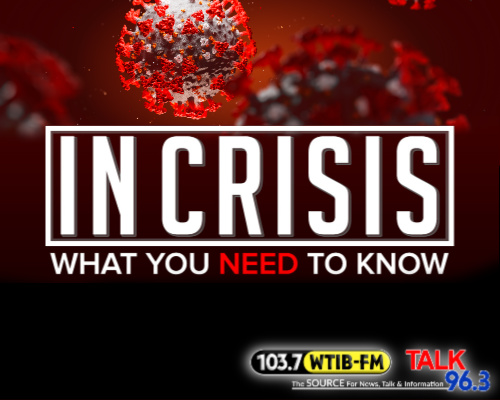New unemployment claims fall below one million; still at record levels
New unemployment claims fell below one million for the week ending August 8, to 963,000, according to numbers released Thursday morning by the U.S. Department of Labor. The numbers are better than expected but still reflect the 21st straight week of historically high unemployment claims. Even so, it’s the first week since the pandemic hit in March that weekly unemployment claims fallen below one million. The 963,000 claims is a decrease of 228,000 from the previous week’s level, which itself was revised up by 5,000 to 1,191,000. Economists say it’s too early to tell what effect the expiration of the additional unemployment benefit of $600 may have on these filings – that should become more clear in the coming weeks.
COVID-19 numbers
Here’s the latest data on COVID-19 coronavirus infections and deaths.
Latest reported numbers globally per Johns Hopkins University
Global diagnosed cases: 20,648,298
Global deaths: 749,965. The United States has the most deaths of any single country, with 166,038.
Number of countries/regions: at least 188
Total patients recovered globally: 12,849,485
Latest reported numbers in the United States per Johns Hopkins University
There are at least 5,197,749 reported cases in 50 states + the District of Columbia, Puerto Rico and Guam. This is more than in any other country.
U.S. deaths: at least 166,038. New York State has the greatest number of reported deaths in the U.S., with 32,797.
U.S. total patients recovered: 1,755,225
U.S. total people tested: 63,731,305
The greatest number of reported COVID-19 cases in the U.S. is in California, with 591,376 confirmed cases out of a total state population of 39.51 million. That is second only to Sao Paulo, Brazil, which has 655,181 cases, as the most reported cases of any single region in the world.
COVID-19 headlines
Experts warn of COVID-19-flu one-two punch this fall
With the start of the annual flu season only a few months away, and the COVID-19 pandemic ongoing, experts are saying it’s more important than ever to get a flu vaccine this year. Centers for Disease Control and Prevention Director Dr. Robert Redfield tells Web MD that some 360,000 people died of seasonal influenza in the U.S. in the last ten years, so it’s essential to do what one can to not only protect “yourself, your family, your church, [and] your workforce” from the flu, but also to keep hospital beds free for COVID-19 patients. A forecast from PolicyLab, an influential research arm of the Children’s Hospital at Philadelphia, is more direct, declaring that while the overall COVID-19 infection rate in the U.S. is showing signs of decline, there are signs the infection risk is beginning to shift from the South to the North as the weather cools. This can create “a potential perfect storm in advance of fall and cooling weather” of COVID-19 and flu infections, PolicyLab warns. The report also points to a growing risk in college towns, where students are just now returning to school, potentially spreading infection. The warnings come as the U.S. on Wednesday reported nearly 1,500 COVID-19 deaths in a single day, the highest single-day total since mid-May. Daily deaths have averaged more than 1,000 for 17 days in a row.
Still no progress on COVID-19 relief talks
Coronavirus relief talks hit a wall once again Wednesday, as negotiators appeared completely unable to find common ground and lawmakers prepared to leave Washington for the month-long August recess. After five days with no outreach, Treasury Secretary Steven Mnuchin called House Speaker Nancy Pelosi on Wednesday to discuss a way forward, but the speaker, in a joint statement with Senate Democratic Leader Chuck Schumer, made clear that the conversation failed to break the logjam. “Democrats have compromised. Repeatedly, we have made clear to the Administration that we are willing to come down $1 trillion if they will come up $1 trillion. However, it is clear that the Administration still does not grasp the magnitude of the problems that American families are facing,” the two top Democratic negotiators said. In lieu of a congressional deal, President Trump on Saturday signed four executive actions the White House says will provide COVID-19 relief to Americans, including $400 a week of extended unemployment benefits, but the actions have been criticized on both sides of the aisle as both ineffective and, in some cases, lacking legal authority.
